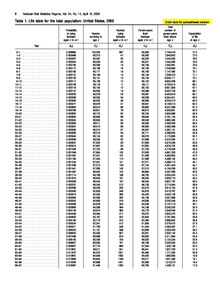
Actuarial science is the discipline that applies mathematical and statistical methods to assess risk in insurance, pension, finance, investment and other industries and professions.
Actuaries are professionals trained in this discipline. In many countries, actuaries must demonstrate their competence by passing a series of rigorous professional examinations focused in fields such as probability and predictive analysis.
Actuarial science includes a number of interrelated subjects, including mathematics, probability theory, statistics, finance, economics, financial accounting and computer science. Historically, actuarial science used deterministic models in the construction of tables and premiums. The science has gone through revolutionary changes since the 1980s due to the proliferation of high speed computers and the union of stochastic actuarial models with modern financial theory.[1]
Many universities have undergraduate and graduate degree programs in actuarial science. In 2010,[needs update] a study published by job search website CareerCast ranked actuary as the #1 job in the United States.[2] The study used five key criteria to rank jobs: environment, income, employment outlook, physical demands, and stress. In 2024, U.S. News & World Report ranked actuary as the third-best job in the business sector and the eighth-best job in STEM.[3]